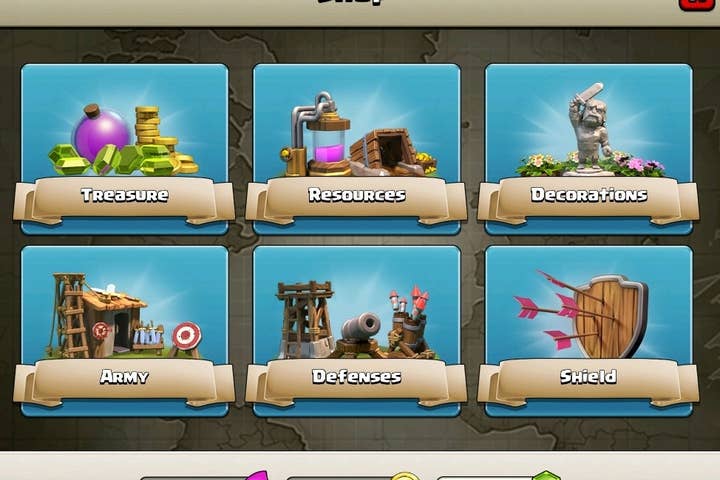The Future of Games: F2P Is Not Evil Nor The Only Solution
A them-and-us mentality over free-to-play is making fools of us all, argues Will Luton
Free-to-play has fractured the industry, creating smug preaching zealots in the column inches (hello, mum) and neo-luddite reactionaries decrying the advance from the conference podiums. Anti-F2P rhetoric from the bleeding hearts is just as much the mind-numbing wibble as "the only way" lectures from the moneymen.
"Public discussions and formalisation of concepts such as Skinner Box experiments and core loops seemed shallow, cold and greedy"
This nonsense of drawing us-and-them divides and speaking in unwavering certainty is making fools of us all. F2P is divisive when it needn't be. This is a call for the inevitable restoration of common sense.
F2P Is Not Evil
The "evil" trope has been persistent since early 2011 when Braid creator Jonathan Blow was quoted as saying on social games: "there's no other word for it except evil". Just last month Ridiculous Fishing dev Vlambeer said "non-evil freemium is almost impossible". Today Googling for the phrase "F2P is evil" returns 14,200 results.
Firstly this incredibly flippant use of the word damages its meaning for when it is truly applicable (see recent world events) and secondly, it's bollocks. I believe this pomposity stems from a seemingly misaligned focus of free-to-play from those most evangelical in past years. Free-to-play blindsided many businesses as the industry scrambled to explain "how it works", with a big emphasis on the hows and whys of player spending.
This financial emphasis was mixed with the scientific method afforded by new always-connected platforms and lean start-up culture, ostensibly turning much of a designer's craft in to what appeared to be soulless machine-like science.
Public discussions and formalisation of concepts such as reward schedules (often linked to the Skinner Box experiments) and compulsion loops (thankfully now more commonly called core loops), whilst allowing us to more accurately understand the components of the games we see and their relationship with players, seemed shallow, cold and greedy.
Money from, rather than the pleasure of, our players seemed to many to be the singular goal of free-to-play. Meanwhile the wide appeal and non-skilled based gameplay of early F2P darlings, such as FarmVille, irked the snobbish gamer. To this end F2P can be seen to be uncaring and, to those partial to such magniloquence, the evil label should be suitable.
However, F2P is not about tricking players in to spending money or eroding gaming, but a currently clumsy, yet ever more refined, renegotiation of the deal we as game makers offer to our players owing to the changes digital delivery brings. Today we don't have to put a disc in a box to let a player play, so why should we attempt to charge them like we do?
F2P Is Not The Only Way
I am such a big believer in F2P that I wrote a book about making games for the model. However, F2P is patently not the only way of making money in our industry today.
Subscription, ad supported, paid and paymium games are all profitable for the right game, on the right platform and for the right audience. Part of the renegotiation we've entered is about which bits of these models are acceptable and in which context.
"What we have now isn't the endgame in making money from games; it's just the best next step of a long march"
In fact free-to-play is a fast evolving hybrid of lots of the above models (and them of F2P). What we have now isn't the endgame in making money from games; it's just the best next step of a long march. F2P's biggest advantage is in dropping the barrier for players, allowing anyone to play and decide if and how much they wish to spend. Fans can sink hundreds for dollars, whilst those that hate your game leave with a full wallet.
Whilst I fail to understand why any developer wouldn't want that democratising of their content (unless of course they make shitty games), the facilitation of it brings creative limitations and restrictions that cannot be ignored. F2P simply makes making games more difficult.
The current wisdom dictates that a free-to-play title must have a checklist of mechanics, including recursive infinite gameplay, a scarce limited resource that can be indefinitely bought and social interactions that drive demand for the resource. How then do you reconcile those criteria with, for example, a classic third-person action adventure? You simply can't.
Whilst I believe that these challenges make F2P the most exciting place to be as a game designer right now, it is also a hindrance. Not only does the model limit genre decision, but also it increases production time by complicating design and necessitating features.
Spunking out a game and sticking a price tag on it, not out of indignation but because it's easier and creatively freeing, is off trend but a fine course of action.
Two-man indie Frogmind announced they sold 100,000 copies of Badland at $3.99 on the App Store in its first week. A reasonable payoff for a year's work. However, this success should be given some context: the title only just managed to scrape in to the top 50 grossing in some of the most meaningful regions, peaking at 52 in the US. Whilst providing Frogmind with a living, it is certainly a way off being much more than a blip or an outlier amongst the corpses of other indie releases.
Today in the UK only two apps in the 25 top grossing apps are paid (FIFA 13 and Minecraft), the remaining 23 are free with in-app purchases. However, iOS is not the only platform. Steam, Facebook and consoles all have different permissible models and different types of games and players, making them each unique propositions.
The Balance
I believe it is inevitable that the F2P model will continue to evolve as our creatives gain a fuller understanding of how to use it and move to apply it inventively to new and ever better games. In a year's time the model will have shifted, with new platforms embedding in player's lives and games we never envisioned.
The history of video games is littered with hard to predict outlier successes that lead to retrospective rationalisation, imitation and eventual trends that iterate, evolve and merge. Business models have remained relatively unchallenged in the industry since inception, so F2P and all its associated changes bring with it the shock of the new.
A fanatical reaction to free-to-play in the positive or negative, which I have been guilty of myself in the past, clouds the picture. We must avoid partisanship and the accompanying generalisations that simplify complex situations and stop us from making decisions that are positive and well considered.
Will Luton is a free-to-play designer and consultant. This is the first in a regular series of features for GamesIndustry International looking at the future of the video game business. You can follow him on Twitter and visit his personal site here.








